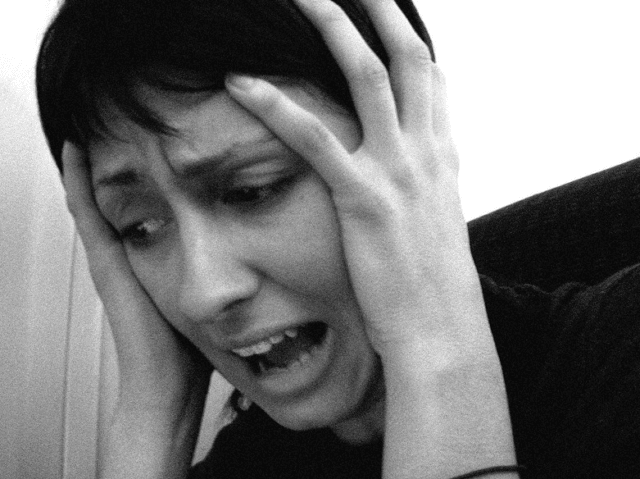It is perhaps no accident that the coronavirus panic only began roiling world markets after Sen. Bernie Sanders (I-VT) emerged as the frontrunner for the Democratic Party’s nomination for president after the Nevada caucuses last weekend.
The “democratic socialist” is still the frontrunner, despite former Vice President Joe Biden’s win in South Carolina on Saturday. He is widely viewed as the least likely to defeat President Donald Trump in November’s general election.
There are no alternatives to a Sanders-Biden contest, which Biden may struggle to win. The Mike Bloomberg bubble burst at the Nevada debate, and may not recover if Sanders wins California (and Texas) handily on Super Tuesday.
Sanders’s surge is itself the result of a despair that seized many Democrats after the Iowa debate, when it seemed none of the candidates could beat Trump. If they were to lose anyway, better to vote for a sentimental favorite.
So the rise of Sanders is the result of one kind of panic, and the coronavirus panic is another: the reaction of those who believe the “fake news” and have convinced themselves that President Trump really is incompetent in a crisis.
You do not need the majority of people to panic to create a panic. You just need a significant proportion of people, reacting at the same time. And the signal to panic was sent last Tuesday by CDC official Dr. Nancy Messonnier.
Dr. Messioner said: “We expect we will see community spread in this country … It’s not so much a question of if this will happen anymore, but rather more a question of exactly when this will happen and how many people in this country will have severe illness.”
Her words had an innocuous, scientific meaning: she was predicting there would be some spread of coronavirus (which there has been) and that some people would become seriously ill as a result.
What she did not say — yet what is equally true — is that “community spread” could be limited, and that we already know that only a small proportion of those who have become infected (and no children!) have become severely ill.
Messonnier is the sister of former Deputy Attorney General Rod Rosenstein, who was once suspected of trying to help remove the president from office. But there was no conspiracy at work — rather, just the ordinary problem of scientists not being very good at communicating to the public, and not realizing that in a climate of uncertainty, enough people will seize on small bits of information and give them the worst interpretation: we’re all gonna die!
The illness is real, and the fear is real, but the reality of coronavirus is not that scary. What gave coronavirus its particular punch is there was already a large group of people in a state of fear, ready — or even eager — to panic.
For five years, the media have been telling us that Donald Trump is not just a buffoon and a criminal, but also a danger to national security. (Those words were literally used over and over again in the Senate impeachment trial.) Until late last year, Democrats and journalists hyped every possible speck of bad economic news — in a tsunami of good data — to frighten the public into believing a recession was on the way. (Some may even have believed it.)
The economy kept rolling, and Trump kept succeeding. But a good proportion of the general public refused to see it, or could not see it. Democrats, in particular, believed that the country was on the wrong track. Sanders’s rise suggested that they would not be able to remove the cause of their fears at the ballot box, after failing in the Senate, and the coronavirus news made enough of them believe millions of people could suffer “severe illness” as a result.
Trump’s opponents, and those who still live in fear of what he could do, might not, under ordinary circumstances, be able to vote him out. But they still have a “vote” in public sentiment. Their panic is their power. Markets are largely about the public mood, and even “fake news” narratives have impact, if enough people react.
Ironically, not being able to vote Trump out of office has partly triggered a panic that has given Trump opponents a chance of doing so.
President Trump has managed coronavirus largely as he should — better, in fact, because he closed travel to China early, over objections. He has also taken charge of the administration’s message, wisely. But there is little he, or his supporters, can do to stop panic by those determined, or inclined, to do so.
The best response is to keep on keeping on: “The only thing we have to fear is fear itself,” as FDR said. And, note: at least it didn’t happen in October.
Joel B. Pollak is Senior Editor-at-Large at Breitbart News and the host of Breitbart News Sunday on Sirius XM Patriot on Sunday evenings from 7 p.m. to 10 p.m. ET (4 p.m. to 7 p.m. PT). He earned an A.B. in Social Studies and Environmental Science and Public Policy from Harvard College, and a J.D. from Harvard Law School. He is a winner of the 2018 Robert Novak Journalism Alumni Fellowship. He is also the co-author of How Trump Won: The Inside Story of a Revolution, which is available from Regnery. Follow him on Twitter at @joelpollak.

COMMENTS
Please let us know if you're having issues with commenting.